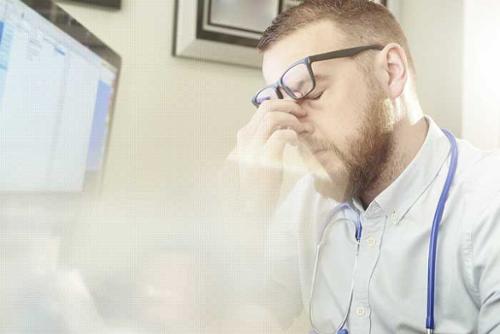
Medical Residency can exact both a mental and physical toll on those who pursue the training. While many positive experiences, knowledge, and confidence can be gained, there can also be negative effects.
It is understood that physical inactivity, poor diet, and stress can all combine to contribute to overall poor health during Residency, but they can also contribute to outcomes like:
Decreased Aerobic Fitness
A sad fact of Residency is that it can adversely affect a trainee's aerobic function. Long, hectic working hours can take a toll on a Resident's health despite efforts to maintain a fitness regimen. Results evaluating house staff Physicians have found that increases in work hours meant decreases in aerobic fitness, independent of changes in exercise regimens(1).
It's worse for Surgical Residents — Research comparing physical fitness of surgical residents and medical residents while undergoing training revealed that surgical residents suffered more deleterious effects from training than did medical residents(2). They were found to have lower aerobic fitness levels and higher BMI rates when assessed.
Sleep Deprivation
Sleep deprivation is a fact of life during Residency training. It can negatively affect mood and performance while making training even more difficult. The level of sleep deprivation a Resident experiences can vary considerably based on specialty type and easy versus hard rotations. Research results suggest that Residents working in a more difficult rotation experience an average of 19 fewer hours of sleep a month than do their less stressed colleagues(1).
Burnout
Burnout is a big problem for today's healthcare providers. Daily stress and chaotic schedules have about 50% of medical Residents meeting the criteria for burnout(3). These numbers climb even higher when looking at certain specialties like OBGYN, where 75% of Residents meet burnout criteria(3).
Mental Illness
Due to the stigma of mental illness and limitations that it would have on a medical career if it were disclosed, the true number of Medical Residents suffering from mental illness is unknown. What is known is that the rates of depression and anxiety are higher amongst medical professionals. This negative effect on mental health also extends to suicide, which is the second leading cause of death amongst Medical Residents(4).
Poor Diet
Residency rarely affords a 9-to-5 schedule with set mealtimes. This means that meals are often unscheduled, eaten on-the-go, or whatever is available within arm's reach. Over time, this poor diet can contribute to increases in BMI as well as GI issues.